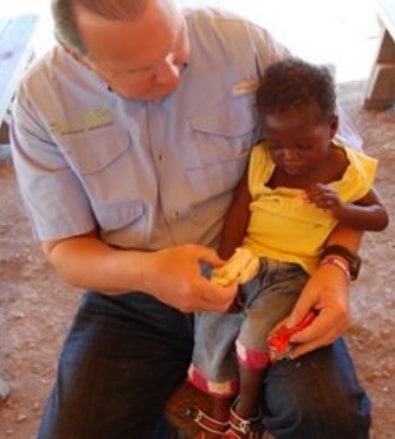“It’s what you do” is the theme for an entire series of insurance commercials. If, for example, you’re a parrot, “you repeat things. It’s what you do!”
What would a Christian version of that commercial look like? “If you’re a Christian, you [blank]. It’s what you do!”
The possibilities are endless. There are legitimate options on every page of the Bible, and there are pressing needs and opportunities everywhere you look. And where there is a legitimate need, within the family of God, there are spiritual gifts sufficient to respond.
Hebrews 6 encourages Christians to “keep doing” so you’ll get a “Well done!” The Message includes the unusual phrase “salvation things” in the verse. There are endless tasks, or “salvation things,” the church ought to do in the name of Jesus Christ. But what the writer mentions by way of illustration stokes my imagination.
“I have better things in mind for you—salvation things! God doesn’t miss anything. He knows perfectly well all the love you’ve shown Him by helping needy Christians, and that you keep at it” (Hebrews 6:9-12, The Message).
I love the church for going into the world with the gospel to win the lost and disciple the saved. Evangelism and discipleship will always be “what we do!” But it is this thought of “helping needy Christians” in some sustainable manner that has captivated my latter years of “doing.”
Fresh Approach
KORE ministry was founded to pursue sustainable solutions to extreme poverty within the Christian community of Haiti. “It’s what we do!” Today there are nearly 200 KORE families who have their own poultry businesses. We call it “business as ministry,” giving an economic foothold to impoverished believers.
I love that many in the church are embracing this fresh approach toward the plight of the Christian poor, brothers and sisters stuck in extreme poverty. And I am excited to see many Christians, especially young adults, working together, developing innovative and sustainable ministries that attack poverty wherever it is found.
The church has a history of extending charity to the poor in times of need. Unfortunately, in recent years too often our well-intentioned generosity has done more harm than good. No place is this better documented than Haiti.
The story of charity there is one of fraud, greed, corruption, waste, and competing agendas. For decades the church has been obedient to the Great Commission, resulting in tens of thousands of Haitian believers. But in spite of millions of dollars contributed there for ministry, the vast majority of those Christians still exist in extreme poverty. Most are still dependent on missionaries to provide for them.
But a new wind is blowing. It is a biblical approach to enabling the poor to stand on their own. Rather than mission dollars being funneled as handouts, creative thought is focusing those funds as investments in God’s people.
KORE uses a chicken coop as a tool against poverty. Other ministries are trying other creative options. The Christian poor need opportunities and resources, rather than continuing relief, if they are to ever experience economic freedom.
I love the church for challenging traditional thinking and searching for better ideas to honor Christ and his people. “It’s what we do!”
Dennis Bratton, a retired preacher from Gallatin, Tennessee, is the founder/CEO of KORE Foundation, which pursues sustainable solutions to extreme poverty within the Christian community of Haiti.


